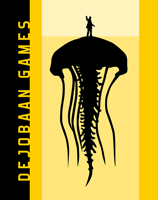
What was merely a trickle has become a flood.
Today’s piece of 38 Studios news (which was not obtained from their silent website) is that we now know what their secret first title, previously only referred to as “Project Mercury,” is going to be called, when it is due to be released, and who gets to see it first.
Representatives of 38 Studios, the brainchild of former Red Sox pitcher Curt Schilling, have escaped the humidity of Boston and are currently in San Diego, Calif., where a select few will be treated to teasers of the game, an RPG titled Kingdoms of Amalur: Reckoning, due out in the fall of 2011.
Jen MacLean, CEO of 38 Studios, “can’t wait to share the first details of this universe we have been so dedicated to building over the past few years.” Of course, for those of us still here in Boston, dedication to the task in hand is what continues to drive the vibrant indie games community, which Schilling’s All-Stars may or may not be part of in the near future.
This was in evidence at a packed Boston Indies session held at The Asgard in Cambridge last night. Drawn together by the prospect of good conversation, a fine selection of ales and a presentation by indie superstars Dejobaan Games, it was standing room only in a bar named after the capital city of the Norse Gods.
For 51 minutes, Ichiro Lambe and his team (which included a cardboard cutout of John Wayne) held the floor, covering important issues of design and marketing, detailing the implementation of their vision, and discussing how best to deal with the press. Lambe is always good value — Dejobaan’s games are about fun — and by giving the assembled developers a taste of how his company deals with “boring stuff in video games,” the pace of the presentation never slowed.
Lambe believes that indie game developers should, “Do something remarkable: Identify the aesthetic and go in the opposite direction.” Bostinnovation has covered Dejobaan’s most recent game, AaaaA, on numerous occasions, but last night we were treated to screen shots of what the team has been working on lately – and the game is only one piece of the pie.
Two distinct projects were revealed. The first, naturally, was the game: ooo!ooO!oOO!OOO!
This title uses trigonometry and “basic polygon-wrangling functionality” to create streams and tendrils through which you navigate and score points – similar to AaaaA. The difference between ooO and AaaaA is that the new game’s mechanics use the player’s own Mp3 library to navigate the obstacles at increasing speeds. This seems to be a very popular way (see the locally-created title Turba) of providing a personalized experience for the gamer and should enhance the gameplay accordingly.
Not content with showing us ooO, Boston Indies attendees were then treated to DING.
Developed by Elliot Borenstein (who is interning at Dejobaan for the summer), this is an “in-house tool to make our 3D people more powerful in ooO and beyond.”
In layman’s terms, DING is a procedural modeling application that can be used by one person to create models and animation that would normally require a team of developers. Borenstein, ironically, spoke to 38 Studios about a possible internship but never received an offer. He has used Maya — a software application used for 3D animation, 3D modelling, simulation, visual effects, rendering, match-moving, and compositing – to build DING, and the demonstration last night only hinted at the possibilities this could open for game developers who are working on a tight budget.
Meetings organized by collectives such as Boston Indies are a vital part of the gaming industry in Boston. Irrespective of what is being worked on by individual companies and developers, the desire to be a part of a creative community is what brings people together at these events. The chance to sit down with your peers over a pint (or in some cases, a dubious looking cocktail) and discuss gaming, marketing, the implementation of ideas, problems and solutions, and how to get your vision to the consumer are an integral part of product development, and all are addressed regularly by the local game development community if you look hard enough.
In a week when others are deciding whether to stay or go, the full house at the Asgard showed that the community will remain strong with or without 38 Studios. Boston Indies is a part of that community and it provides a function beyond just sitting in a bar in Cambridge. As Lambe pointed out when a question was asked about Curt Schilling, “When he talks about game development, I think about my knowledge of baseball. We have one of the best games communities in the world, why would I leave?”
Exactly.
What do you think of Boston’s indie game development set? What are your favorite games from the local scene? What can we do to raise awareness about the community? Share your thoughts in the comments section below.
For more on Dejobaan, be sure to check them out on Twitter @RoRoDejobaan or Like them on Facebook!
